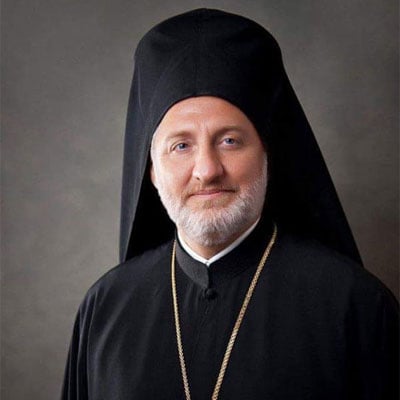My Brothers and Sisters in Christ,
you can still join in, follow and pray the divine services of the Church via our Parish LiveStream.
Sunday morning Orthros - 8:30 am
Divine Liturgy - 10:00 am
To View Your Sunday Weekly Bulletin Please Click on the Link Below
http://www.stspyridon.org/assets/docs/weekly_bulletin.pdf
You Can Light a Candle “From Afar”
Lighting a candle as we enter the narthex of the church is one real way we express our presence within the Body of Christ as we offer a prayer. If you would like to light a candle to express your presence “from afar” visit our website and follow the directions found there. Then, Fr. Andrew will receive your message and light your candle and offer a prayer. www.stspyridon.org
Staying Strong Together in Prayer
Please join us Monday - Saturday at noon as we pray as a community for strength and courage during this Corona Virus crisis. The prayer is brief and very easy to join - just dial 605-313-6214 code 845590#
Please see the "Inserts and Fliers" section below for more information.
Stewardship Corner
The Stewardship Committee would like to thank those who have kept up with their stewardship giving and respectfully asks every steward to do what they can at this very important and critical time in the life of our parish. Thank you!
Got Graduates?
It is time once again to recognize our high school and college graduates.
So, please contact Tina in the church office with the name(s) and your future plans (if any) of your graduate(s).
Please contact Tina using the following email address office@stspyridon.org or you can call the church office - thank you.
Agape Meals
Philoptochos has an outreach program where people can cook or deliver (or both) a meal to one of their fellow parishioners who may be facing a difficult or stressful time in their life (illness, new baby, etc). If you would like more information on how you can participate, or know of someone in our community who could use a meal or two, please contact Stella Weil at (858)694-0570 or 4weils@sbcglobal.net. Please join us as we come together as a community to help one another. Thank you.
Your Legacy and Your Church
...to whom much is given; from them much more is required (Luke 12:48).
Please remember to include your Saint Spyridon parish in your estate plan and bequest.
Receive Back 0.5% From “Amazon Smile” Foundation
We are pleased to announce that St. Spyridon GOCnow participates in AmazonSmile. When you shop on AmazonSmile, the AmazonSmile Foundation will donate 0.5% of the purchase price to St. Spyridon Greek Orthodox Church. That’s right, every eligible purchase you or someone else makes at AmazonSmile 0.5% will be donated back to our parish!!!
Register by visiting AmazonSmile (smile.amazon.com) and select “St. Spyridon Greek Orthodox Church” before you make your first purchase (be sure to select St. Spyridon Greek Orthodox Church - San Diego, California).
For more information about AmazonSmile, go to http://smile.amazon.com/about
We hope you’ll consider this easy way to support your beloved parish. Everyone is eligible to participate so tell your friends and relatives and spread the word about this wonderful program.
Live Stream Broadcast
If you know someone who may be in the hospital or homebound or for whatever reason just cannot get to church, don’t forget about the Live Stream Broadcast of our Divine Services. You can watch our Live Broadcast by going to our parish website and clicking on the “Live Broadcast” tab on the top toolbar. Remember, our Live Stream Broadcast is for those who absolutely cannot physically make the divine services of the church and is not a substitute for being present. Also, please be aware that conversations, crying babies, etc. can be heard on the broadcast. We have a wonderful cry room facility, which is located off the Narthex behind the candle stand, and is comfortable and provided for your convenience.
The Live Stream divine services of Saint Spyridon Greek Orthodox Church of San Diego, CA may not be recorded, retransmitted or reproduced without the express written consent of the Parish Council of Saint Spyridon Greek Orthodox Church of San Diego, CA. Thank you for your consideration.
Donations toward the digital ministries of the parish are warmly welcomed. If you would like to help support the ministries of Saint Spyridon please contact the church office. Again, thank you.




 And know, that the shadows we experience today, are fleeting. Christ our Light, is come upon us, to dispel every darkness, and to raise us up, with Him, to everlasting light and life!
Χριστὸς Ἀνέστη! Ἀληθῶς Ἀνέστη!
And know, that the shadows we experience today, are fleeting. Christ our Light, is come upon us, to dispel every darkness, and to raise us up, with Him, to everlasting light and life!
Χριστὸς Ἀνέστη! Ἀληθῶς Ἀνέστη!